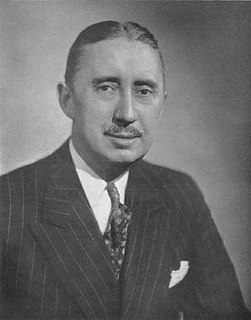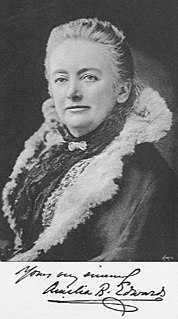A Quote by Philip Yancey
Whoever desires to remain faithful to Jesus must communicate faith as he did, not by compelling assent but by presenting it as a true answer to basic thirst. Rather than looking back nostalgically on a time when Christians wielded more power, I suggest another approach: that we regard ourselves as subversives operating within the broader culture.
Related Quotes
It is only necessary to seek one thing: to be with Jesus. The man who remains with Jesus is rich, even if he is poor with regard to material things. Who ever desires the earthly more than the heavenly loses both the earthly and the heavenly. But whoever seeks the heavenly is Lord of the whole world.
If God made no response except to perfect faith, who could hope for help? But God has regard for beginnings, and His eye perceives greatness in the germ. The hand of the woman in the crowd trembled as it was stretched toward Jesus, and the faith back of it was superstitiously reverent, trusting in the virtue of the robe, rather than in the One who wore it; yet the genuineness of that faith; feeble though it was, triumphed in God's loving sight. Real trust is real power, though the heart and hand be feeble.
The ideal of faith in ourselves is of the greatest help to us. If faith in ourselves had been more extensively taught and practiced, I am sure a very large portion of the evils and miseries that we have would have vanished. Throughout the history of mankind, if any motive power has been more potent than another in the lives of all great men and women, it is that of faith in themselves.
The following are the universally fundamental laws of literary communication: 1. one must have something to communicate; 2. one must have someone to whom to communicate it; 3. one must really communicate it, not merely express it for oneself alone. Otherwise it would be more to the point to remain silent.
Every trial a man goes through, if he is faithful in that trial and does honor to God and his religion he has espoused, at the end of that trial or affliction that individual is nearer to God, nearer in regard to the increase of faith, wisdom, knowledge and power, and hence is more confident in calling upon the Lord for those things he desires.
No, you can take it from an expert in cover-ups-I've lived through Watergate-that nothing less than a resurrected Christ could have caused those men to maintain to their dying whispers that Jesus is alive and is Lord. Two thousand years later, nothing less than the power of the risen Christ could inspire Christians around the world to remain faithful-despite prison, torture, and death.
Still, there is a basic reticence about his approach that feels refreshing in today's culture of maximum exposure. Brandt did not go to great lengths to turn people into icons, nor did he presume to show their “true nature” in something so transient as a photograph. Instead, he used photography's special qualities to suggest intimate things about his subjects, things that cannot be put into words, and may not even be possible to put into pictures.
It may be said of some very old places, as of some very old books, that they are destined to be forever new. The nearer we approach them, the more remote they seem: the more we study them, the more we have yet to learn. Time augments rather than diminishes their everlasting novelty; and to our descendants of a thousand years hence it may safely be predicted that they will be even more fascinating than to ourselves. This is true of many ancient lands, but of no place is it. so true as of Egypt.



































